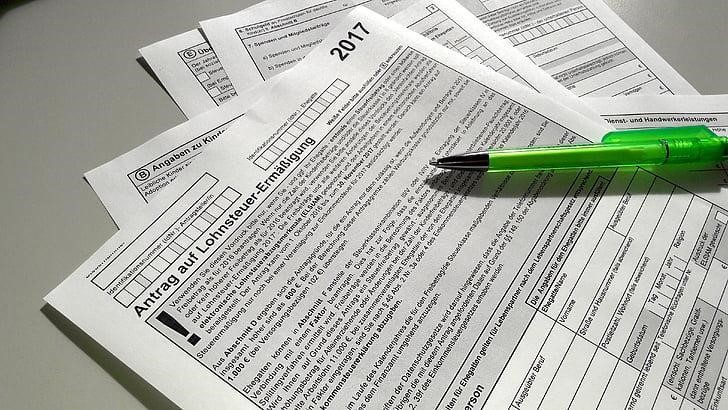Social Security Disability Insurance (SSDI) not only provides you with monthly benefits while you are disabled but also compensates you for the number of months you went without receiving payments during the application procedure. As such, you may be wondering, “Is SSDI back pay is taxable?”
Back payments are taxable since they increase the taxable income of a worker for that year. However, it is true that if your income threshold does not exceed a certain level, then your back payment will not be taxed.
Keep reading below as we go through this in more detail.
SSDI Overview
Social Security Disability Insurance is a program managed by the Social Security Administration (SSA). It is intended to provide financial assistance for those who are disabled and can no longer work. In order to be eligible for financial assistance from SSDI, applicants must:
- Have a medically determinable disability
- Have worked a number of years at a job covered by Social Security
What is SSDI Back Pay?
If you are approved for Social Security Disability Insurance benefits, you will get back pay for the period between the month you first became eligible for payments and the month you actually started receiving payments.
Keep in mind that the sum of money that the Social Security Administration will pay you for any qualifying period of disability before filing your SSDI application is known as retroactive pay and is different from the payment known as SSDI back pay.
When Does Back Pay Eligibility Start?
In most cases, you will be eligible for back pay beginning with the day that you submitted your application for Social Security Disability Insurance and continuing up until the point where you begin receiving your monthly benefits.
This means that the Social Security Administration will pay you benefits for the amount of time during which you have been awaiting their decision on whether or not to approve your application. The exact amount can be calculated by comparing the dates of your application and receipt of benefits.
However, it’s important to keep in mind that this eligibility period excludes the mandatory 5-month waiting period. Suppose you became disabled and applied for benefits on January 1st. Your back pay amount will be calculated starting on June 1st after you have been disabled for a full five months. The maximum duration for which you can get back pay is 12 months prior to your application date.
Do You Have to Pay Taxes on Disability Back Pay?

Your total taxable income in the year that you receive the lump sum payment from the Social Security Disability Administration may increase as a result of receiving disability backpay; therefore, you may end up having to pay more in taxes than you would otherwise.
If you know how to navigate the system, the Social Security Disability Administration will allow you to retroactively assign a portion of your back pay to the previous year or years.
To begin, it’s important to realize that many people who file for SSDI have a lower income from not being able to work due to their disability, therefore they won’t owe any taxes on their back pay. You won’t have to pay taxes on your Social Security Disability payments if you’re an individual taxpayer and make less than $25,000 in total income and back pay.
Also, if you and your spouse file a joint tax return and both of you make less than $32,000 combined in income and back pay for the year, then neither of you will have to pay taxes on your disability benefits.
If your back pay and income exceed these thresholds, the IRS will let you transfer your delayed disability benefits to the year you should have gotten them without requiring you to “amend” your previous year’s tax returns.
You should have received an SSA-1099 form from Social Security. In Box 3, you’ll get a breakdown of how much disability backpay you’re owed for every one of the years prior.
Disability back payments for each year can be taxed differently depending on your other sources of income and the amount of back pay that applies to every year, but any taxes due on these payments will still need to be paid with your current year’s tax return.
You won’t have to pay taxes on your disability backpay if your adjusted gross income (including the back pay for that year) was less than $25,000 (or $32,000 if you’re married and filing jointly) in the prior year.
Although this procedure is fully described and worksheets are provided in IRS Publication 915: Social Security and Equivalent Railroad Retirement Benefits, it can still be confusing to follow through with. Consider seeing a tax expert or using tax software to streamline the process.
Keep in mind that you can avoid paying taxes on the money you receive from Social Security if you work with a disability lawyer to help you win your case.
How Long Does It Take to Get Disability Back Pay?
It should come as no surprise that the back pay to which you are legally entitled will not be paid to you unless and until it has been determined that you are eligible for Social Security Disability Insurance.
The length of time it takes to process your application can range anywhere from a few months to more than a year, depending on the outcome of the initial review of your case and whether or not you are required to submit an appeal.
You need to be ready to wait for at least this amount of time before you will start receiving your SSDI benefits and, as a result, your back pay.
Your back pay will be provided after the approval of your SSDI application; however, the amount of time it will take to process the application varies. The typical wait time for a lump sum back payment is between one and two months for the majority of people.
Conclusion
SSDI back payments can provide relief to those who have been living without their disability payments while waiting for their application to be processed. If you believe you are eligible for SSDI back pay, contact the SSA office immediately to get started on your application process.


